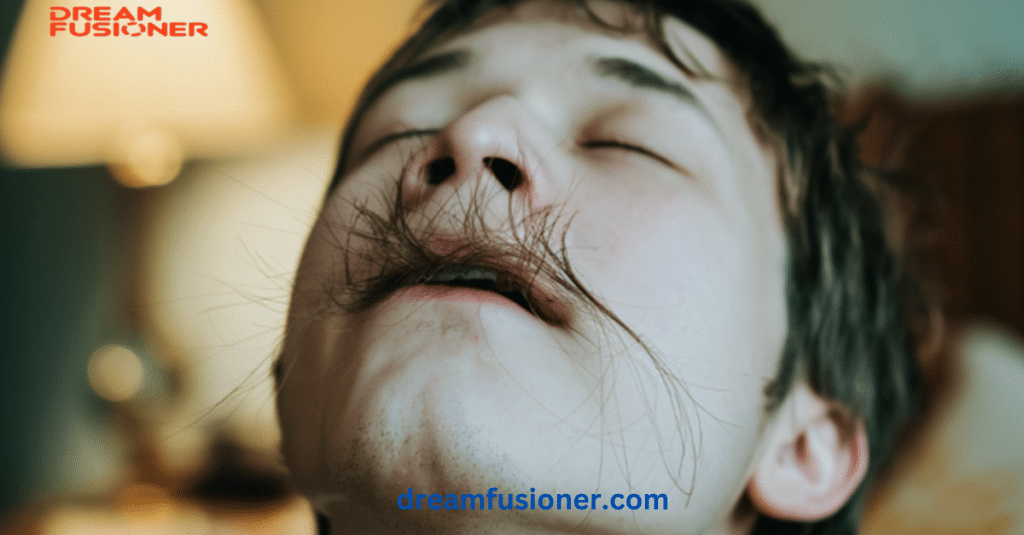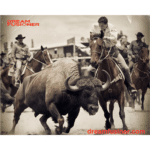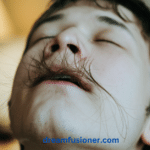Dreaming of Hair In Mouth: Have you ever bolted upright in bed, heart pounding, with the bizarre feeling of hair tickling your tongue? Don’t worry, you’re not alone in this hairy situation. In fact, this strange dream pops up more often than you’d expect. And here’s the kicker – it’s not just a random nightmare. This peculiar vision is actually brimming with symbolism that could illuminate aspects of your waking life you’ve been overlooking.
Let’s comb through the meaning behind Dreaming of Hair In Mouth and discover what your subconscious is trying to tell you.
Introduction: The Hairy Situation in Your Dreams
Picture this: You’re sound asleep when suddenly you find yourself desperately trying to pull an endless strand of hair from your mouth. It’s frustrating, it’s uncomfortable, and it feels eerily real. Then you wake up, relieved it was just a dream, but can’t shake the feeling that it meant something.
Dreams have fascinated humans for millennia. They’re our mind’s playground, where our deepest thoughts, fears, and desires come out to play. And sometimes, they manifest in the strangest ways – like hair in your mouth.
But why do we dream? Scientists believe dreams serve several purposes:
- Processing and consolidating memories
- Working through emotional issues
- Preparing for future challenges
- Exploring creative solutions to problems
When it comes to hair-in-mouth dreams, we’re diving into a particularly intriguing corner of our subconscious. These dreams often leave us with a lingering sense of discomfort and confusion. But fear not! By the end of this article, you’ll have a better understanding of what your mind might be trying to tell you.
Your may also like Dream of Riding in a Car with Someone
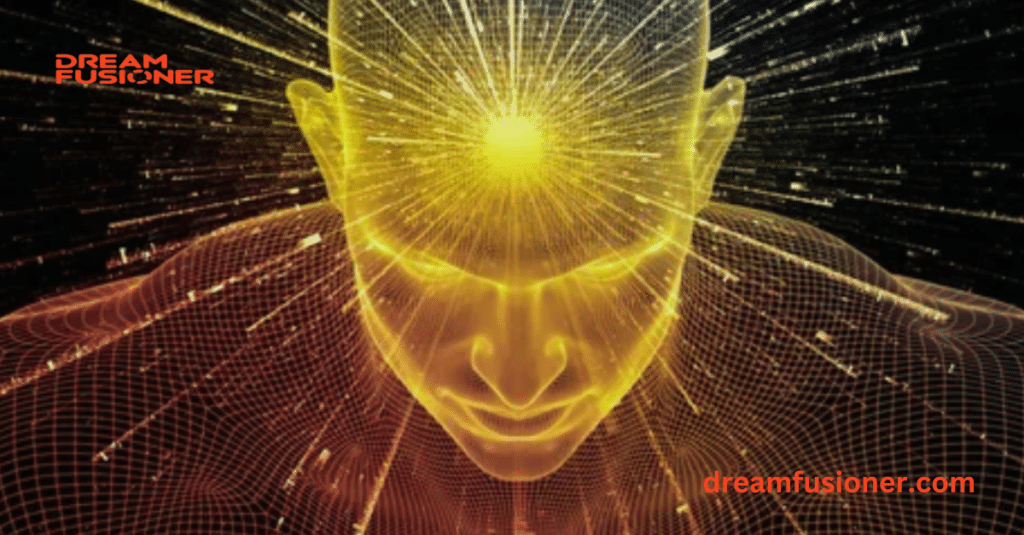
Unraveling the Symbolism: What’s Your Subconscious Trying to Tell You?
Hair isn’t just something we style every morning. Across cultures, it carries deep symbolic meaning. It’s associated with strength, identity, and even spiritual connection. In dreams, hair often represents aspects of ourselves or our lives that we’re trying to control or understand.
Let’s break down some common hair symbolism:
- Strength and Power: Think of Samson in the Bible, whose strength was linked to his hair.
- Beauty and Attraction: Long, lustrous hair is often associated with beauty in many cultures.
- Identity: Hairstyles can be a form of self-expression and cultural identity.
- Life Force: In some traditions, hair is seen as a conduit for life energy.
- Growth and Change: Hair’s constant growth can symbolize personal development.
But why the mouth? Well, our mouths are how we communicate, nourish ourselves, and express emotions. When something’s blocking your mouth in a dream, it’s often a sign that you’re struggling with self-expression or feeling silenced in some area of your life.
The combination of hair and mouth in a dream creates a powerful symbol. Your identity and personal power (symbolized by hair) tangle up with your ability to express yourself (represented by your mouth).. This dream is essentially your subconscious mind’s way of saying, “Hey, we need to talk about this!”

Communication Tangles: When Words Get Stuck
One of the most common interpretations of hair-in-mouth dreams is that they represent communication barriers. You might be dealing with:
- Difficulty expressing your thoughts or feelings
- Fear of speaking up in certain situations
- You feel frustrated when others don’t hear or understand you.
- Holding back important truths
- Feeling overwhelmed by the need to communicate something significant
These dreams often occur when we’re grappling with complex issues in our waking lives. Maybe you’re trying to have a difficult conversation with a loved one, or you’re preparing for a high-stakes presentation at work. Your subconscious mind might be processing these challenges through the metaphor of hair in your mouth.
Case Study: Sarah, a 32-year-old marketing executive, frequently dreamed of hair in her mouth before important presentations. She realized this reflected her anxiety about public speaking and her fear of saying the wrong thing. By addressing these fears, her dreams – and her presentations – improved dramatically.
Sarah’s story isn’t unique. Many people find that their hair-in-mouth dreams correlate with periods of increased communication stress in their lives. The key is to recognize the connection and take steps to address the underlying issues.
Please read about : Dream About Many Cats in the House
The Emotional Hairball: Feelings You Can’t Spit Out
Sometimes, it’s not just words we struggle to express, but emotions too. This dream could be your subconscious telling you there are feelings you need to address:
- Suppressed anger or resentment
- Unacknowledged grief or sadness
- Joy or excitement you’re hesitant to show
- Fear or anxiety you’re trying to ignore
- Love or affection you’re struggling to express
Emotional blockages can manifest as physical sensations in dreams. The hair in your mouth might represent those pent-up feelings you’re having trouble releasing. It’s as if your emotions are literally choking you, preventing you from expressing yourself fully.
“Dreams are the royal road to the unconscious.” – Sigmund Freud
Freud’s famous quote reminds us that our dreams can offer valuable insights into our deeper emotional landscape. By paying attention to these nocturnal messages, we can gain a better understanding of our emotional health and work towards greater emotional clarity.
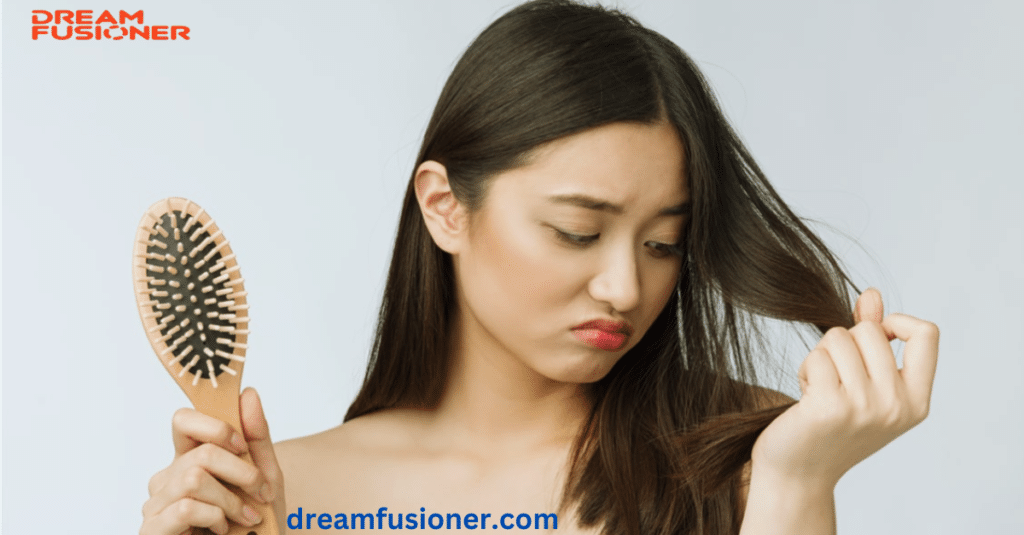
Identity Crisis or Hair Identity? Self-Image Reflections
Hair is deeply connected to our identity and self-image. Dreaming of hair in your mouth could indicate:
- Struggles with self-expression
- Confusion about your personal identity
- Concerns about how others perceive you
- Conflict between different aspects of your personality
- Desire for change or transformation in your life
Our hair is often one of the first things people notice about us. It’s a part of our appearance that we have significant control over, and many people use their hair as a form of self-expression.
When hair appears in our dreams in unusual ways, it’s often a sign that we’re grappling with issues related to our identity or how we present ourselves to the world.
| Hair Type in Dream | Possible Meaning |
| Long, tangled hair | Complex, unresolved issues |
| Short, neat hair | Desire for control or simplicity |
| Colored or dyed hair | Exploring different aspects of personality |
| Falling out hair | Fear of losing power or attractiveness |
| Thick, luxurious hair | Feelings of strength and vitality |
| Dirty or unkempt hair | Neglected aspects of self or life |
Remember, these interpretations are not one-size-fits-all. The meaning of your dream will depend on your personal associations with hair and your current life circumstances.
Psyche Deep Dive: What Your Mind is Trying to Brush Out
From a psychological perspective, these dreams often point to deeper issues:
- Anxiety: The discomfort of hair in your mouth might mirror anxiety you’re experiencing in waking life. This could be generalized anxiety or specific worries about communication, self-expression, or social situations.
- Control Issues: Trying to remove the hair could represent attempts to control aspects of your life. You might be feeling overwhelmed or out of control in some area, and your dream is reflecting your desire to regain a sense of power.
- Unresolved Conflicts: The persistent presence of hair might symbolize ongoing issues you haven’t addressed. These could be internal conflicts (like conflicting desires or beliefs) or external conflicts with others.
- Repression: Hair in the mouth could represent thoughts or feelings you’re trying to “keep down” or suppress. Your subconscious might be urging you to confront these repressed elements.
- Transition and Growth: If you’re going through a significant life change, hair-in-mouth dreams might reflect the discomfort and uncertainty associated with personal growth and transformation.
Dr. Jane Smith, a renowned dream analyst, sheds light on this phenomenon: “When we dream of hair in our mouths, it often reflects something in our waking lives that we’re struggling to ‘swallow’ or accept. It’s the mind’s way of processing difficult experiences or emotions.”
Understanding the psychological implications of these dreams can be a powerful tool for self-discovery and personal growth. By exploring the emotions and experiences associated with your dream, you can gain insights into your psychological state and work towards greater emotional well-being.
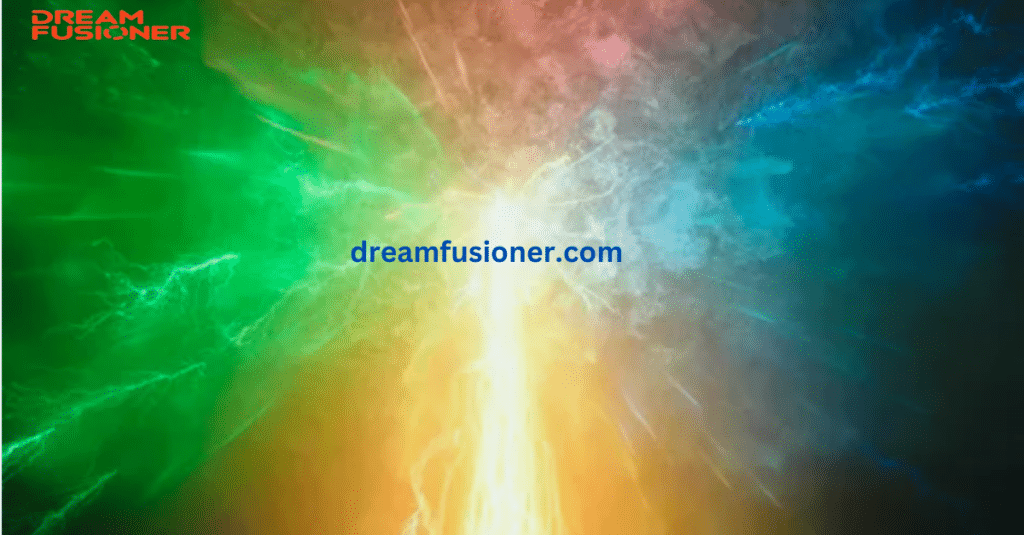
Spiritual Strands: Hair as a Conduit of Energy
In many spiritual traditions, hair is seen as a conduit of energy and a connection to the divine. Your dream might have spiritual significance:
- Native American Traditions: Long hair is often seen as a source of strength and wisdom. Some groups believe that hair is an extension of one’s thoughts and can enhance intuition.
- Hinduism: Hair is considered a connection to spiritual energy, which is why some devotees never cut their hair. The top-knot (Shikha) worn by some Hindus is believed to protect the energy at the crown chakra.
- Biblical References: Samson’s strength was linked to his hair, symbolizing divine favor. In the New Testament, hair is mentioned as a “covering” and a symbol of submission to divine authority.
- Sikhism: Uncut hair (Kesh) is one of the five articles of faith, symbolizing respect for God’s creation and submission to God’s will.
- Buddhism: While many Buddhist monks shave their heads as a symbol of renunciation, the Buddha is often depicted with hair coiled on top of his head, representing spiritual wisdom.
If you’re on a spiritual journey, this dream could be highlighting your connection to higher energies or prompting you to explore your spiritual side more deeply. The hair in your mouth might represent spiritual teachings or insights that you’re struggling to internalize or express.

Combing Through the Discomfort: Addressing Underlying Issues
Now that we’ve untangled the possible meanings behind these dreams, you might be wondering, “What’s next?” Let’s explore some practical steps.
- Journal: Write down your dreams and any emotions or situations they might be connected to. Look for patterns over time.
- Practice Expression: Find safe ways to express yourself more freely, like art, music, or confiding in a trusted friend. You might also consider joining a public speaking group or taking a creative writing class.
- Address Conflicts: If you have unresolved issues in your life, consider taking steps to address them. This might involve having difficult conversations or seeking professional help to work through complex problems.
- Mindfulness: Practice being present and aware of your thoughts and feelings throughout the day. Mindfulness meditation can help you become more attuned to your inner world.
- Seek Support: Consider talking to a therapist or counselor if you’re struggling with persistent emotional or psychological issues. They can provide tools and strategies for working through challenges.
- Explore Your Spiritual Side: If you feel drawn to spiritual exploration, consider practices like meditation, prayer, or studying spiritual texts that resonate with you.
- Physical Self-Care: Sometimes, taking care of your physical self can help address emotional and psychological issues. This might include getting regular exercise, eating a balanced diet, and ensuring you’re getting enough sleep.
Remember, addressing the issues behind your dreams is a process. Be patient with yourself and celebrate small victories along the way.
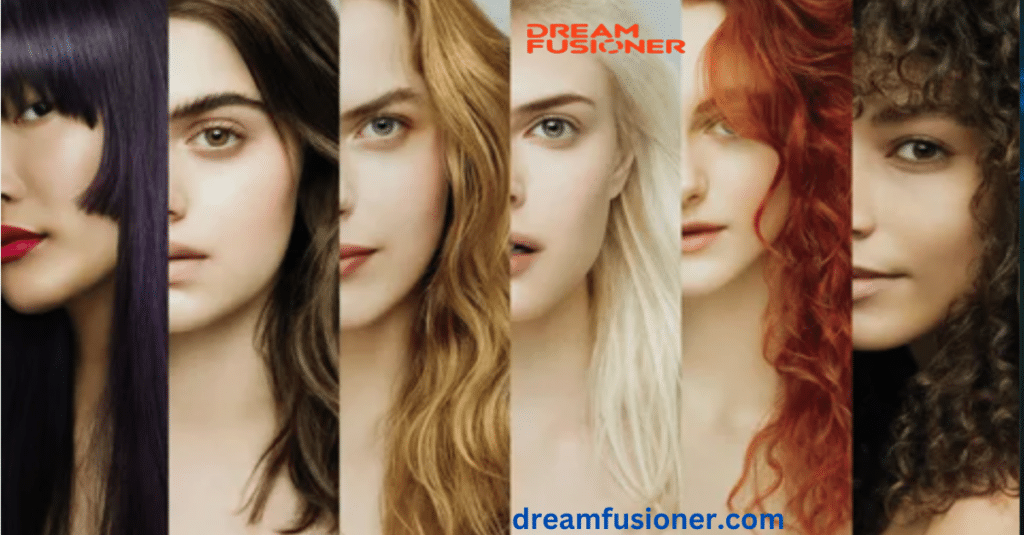
Dream Variants: Different Hairs, Different Meanings
Not all hair-in-mouth dreams are the same. The specifics can offer additional insights:
- Color of Hair: Gray hair might represent wisdom or concerns about aging, while vibrant colors could indicate creativity or desire for change. Black hair might symbolize mystery or the unknown, while blonde hair could represent innocence or a desire for attention.
- Texture: Smooth hair might suggest ease or flow in your life, while tangled hair could point to complications or confusion. Coarse hair might indicate rough patches you’re going through, while silky hair could symbolize grace or ease.
- Amount: A single strand might represent a specific issue or relationship, while a mouthful could indicate feeling overwhelmed by multiple concerns or responsibilities.
- Action in the Dream: Are you pulling the hair out? This could represent your efforts to resolve issues. If the hair keeps growing, it might symbolize a problem that feels never-ending.
- Whose Hair It Is: If you recognize the hair as belonging to someone else, it might represent your relationship with that person or qualities you associate with them.
Compare and Contrast: Hair in mouth dreams vs. other common hair dreams:
- Losing Hair: Often related to fears of aging, loss of power, or diminishing attractiveness. It can also symbolize letting go of old ideas or ways of thinking.
- Cutting Hair: Can symbolize letting go or making a significant change. It might represent a desire for a fresh start or a new approach to life.
- Growing Hair: Might represent personal growth, increasing strength, or developing new ideas. Rapid hair growth could symbolize accelerated personal development.
- Styling Hair: Often relates to how you present yourself to the world. It might reflect concerns about your public image or efforts to change how others perceive you.
- Washing Hair: Can symbolize cleansing of thoughts or a desire for mental clarity. It might also represent self-care or renewal.
Understanding these variations can help you fine-tune your interpretation of your specific dream experience.
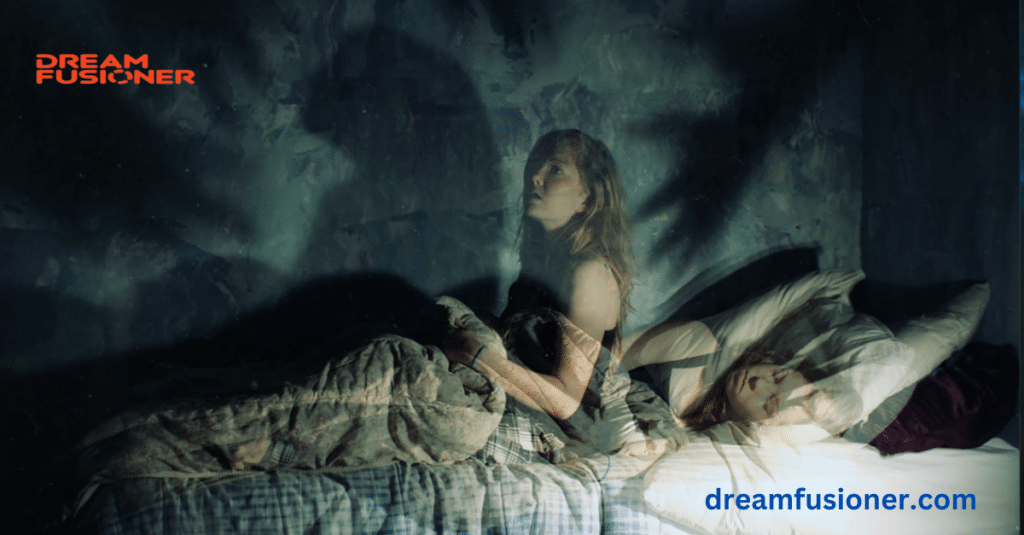
From Nightmares to Night Hairs: Turning Dream Insights into Action
Your dreams are a powerful tool for self-discovery and personal growth. Here’s how to make the most of these nocturnal messages:
- Keep a Dream Journal: Write down your dreams as soon as you wake up. Include as many details as you can remember, including emotions, colors, and any significant symbols. Look for patterns over time.
- Reflect on Your Day: Before bed, think about your day. Could there be any unresolved issues that are influencing your dreams? This practice can help you make connections between your waking life and your dreams.
- Practice Lucid Dreaming: Learning to become aware within your dreams can help you explore their meaning more deeply. Techniques like reality checks throughout the day and setting intentions before sleep can increase your chances of lucid dreaming.
- Use Dream Symbols as Prompts: Let the imagery from your dreams inspire your waking life. For example, if you dream of colorful hair, maybe it’s time to express yourself more creatively. If you dream of tangled hair, perhaps it’s time to simplify some aspect of your life.
- Create Art Inspired by Your Dreams: Drawing, painting, or writing about your dreams can help you process their meanings and tap into your subconscious creativity.
- Discuss Your Dreams: Share your dreams with trusted friends or join a dream discussion group. Sometimes, others can offer perspectives you hadn’t considered.
- Set Intentions Based on Dream Insights: If your dreams consistently point to a particular issue, set an intention to work on that area of your life. Use your dreams as a guide for personal development.
Remember, the goal isn’t to control your dreams, but to learn from them. They’re a window into your subconscious mind, offering insights that your waking mind might overlook.

Q&A: Answering Your Hairy Questions
Q: Are hair-in-mouth dreams always negative?
A: Not necessarily. While they can be uncomfortable, they’re often just your mind’s way of processing complex emotions or situations. These dreams may be viewed as helpful messages from the subconscious, highlighting areas that require attention.
Q: How common are these dreams?
A: While exact statistics are hard to come by, many dream experts report that hair-in-mouth dreams are relatively common, especially among people dealing with communication issues or life transitions. You’re definitely not alone in experiencing this type of dream!
Q: Can medications or diet affect these dreams?
A: Yes, certain medications and foods can influence dream content. For example, dream patterns are known to be affected by some antidepressants. Spicy foods eaten close to bedtime might increase dream vividness for some people. Always consult with a healthcare professional if you’re concerned about how medications might be affecting your sleep or dreams.
Q: Is there a cultural significance to hair-in-mouth dreams?
A: The interpretation of dreams can vary across cultures. In some traditions, hair is seen as a source of power, so hair-in-mouth dreams might be interpreted differently. It’s always worth considering your cultural background when interpreting your dreams.
Q: Can recurring hair-in-mouth dreams indicate a medical issue?
A: While dreams aren’t typically used for medical diagnosis, recurring disturbing dreams could sometimes point to underlying stress or potential sleep disorders. If you’re concerned, it’s always best to consult with a healthcare professional.
Q: How can I stop having these dreams if they’re disturbing me?
A: Although you can’t directly control your dreams, you can focus on addressing the underlying issues they may represent to reduce their frequency.
Practicing good sleep hygiene, reducing stress, and working through communication issues in your waking life might help reduce the frequency of these dreams.

Conclusion:
Brushing Off the Dream and Moving Forward
While dreams of hair in your mouth can certainly be unsettling, they also present a unique opportunity for personal growth. In fact, your subconscious mind uses these dreams to spotlight areas of your life that demand attention. Whether you’re grappling with communication barriers, wrestling with suppressed emotions, or facing identity issues, these dreams serve as an invitation.
They’re urging you to delve deeper, explore these challenges, and ultimately, grow as a person. Therefore, rather than dismissing these dreams, consider embracing them as a catalyst for self-discovery and personal development.
By paying attention to your dreams and using them as a tool for self-reflection, you can gain valuable insights into your psyche. These insights can guide you towards personal growth, improved communication, and a deeper understanding of yourself.
So the next time you wake up from a hair-in-mouth dream, don’t just brush it off. Take a moment to reflect on what your mind might be trying to tell you. It could be the start of a fascinating journey of self-discovery and personal growth.

James Matthew is an experienced blogger at Dream Fusioner, specializing in dream interpretation and analysis. With a deep passion for uncovering the mysteries of the subconscious, James brings insightful perspectives to every post, helping readers navigate the symbolic world of dreams. His expertise makes complex ideas accessible, offering practical guidance for personal growth and understanding.

